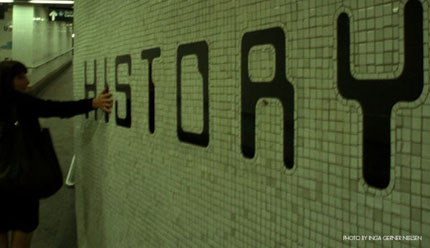This comment is from our February 2011 Newsletter – you can find the whole letter to the right.
Berlin 1989/Egypt 2011. Here at the House of Futures we haven’t worked specifically with the future of the Middle East or Egypt. But if we had, would we have predicted the at once momentous, exciting and risky events that are unfolding at the moment? The short answer is a reasonably confident yes, in the sense that we would have captured such a possibility in the form of a “wild card”, which in futurist terms is an event with a small probability of occurring, but with large consequences if it does. The slightly longer answer is that futures studies aren’t so much concerned with making predictions about what will happen, but rather focus on what can happen and what you prefer to happen.
A forecast, or a prediction, may serve as a useful data point, but is generally too narrow a foundation for strategic decision making. In order to get a better grounded strategic sense of the future, you need a more holistic and open approach, and to that end a tried and tested tool is the scenario method. In the case of Egypt any scenario building process would have to involve long-standing social and political tensions in Egyptian society – tensions such as those between modernisation and traditionalism, between authoritarian and democratic forces, between elite and underclass and between Facebook youth and the control mechanisms of the government’s security services. Other factors include the dynamics of the economic liberalisation process that has been going on in Egypt in recent decades, and outside developments such as those in Tunisia, the Israel/Palestine conflict, and the current spike in food prices.
By working with scenarios it is possible to account for such factors in a systematic way which in and of itself will provide a much better map to the future than a narrow forecast would. But we would typically avoid including tumultuous events like the present uprising in our scenario framework. Instead we would supplement the process by a wildcard session. In discussing Egypt’s protests we obviously have the benefit of hindsight but the extent to which experts have been taken by surprise by them has been striking. Even as protests in Tunisia led to the fleeing of the president of 23 years and very clearly led to stirrings in other Arab countries, few experts allowed that something similar might happen in Egypt. They were busy naming the substantial differences, such as respective levels of income and education. But sometimes the improbable does occur, and you need to be open to that eventuality.
Personally, Tunisia gave us flashbacks to 1988-89, when first Poland and then the entire series of communist regimes fell like domino pieces, one after another. That, too, was a wild card. Right now autocrats in a number of Arab countries are visibly nervous. The situation is fluid and may lead to any of a variety of outcomes, but a development which fully restores the previous kind of authoritarian stability by now seems very improbable indeed. That is now a true wild card.
House of Futures
